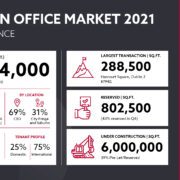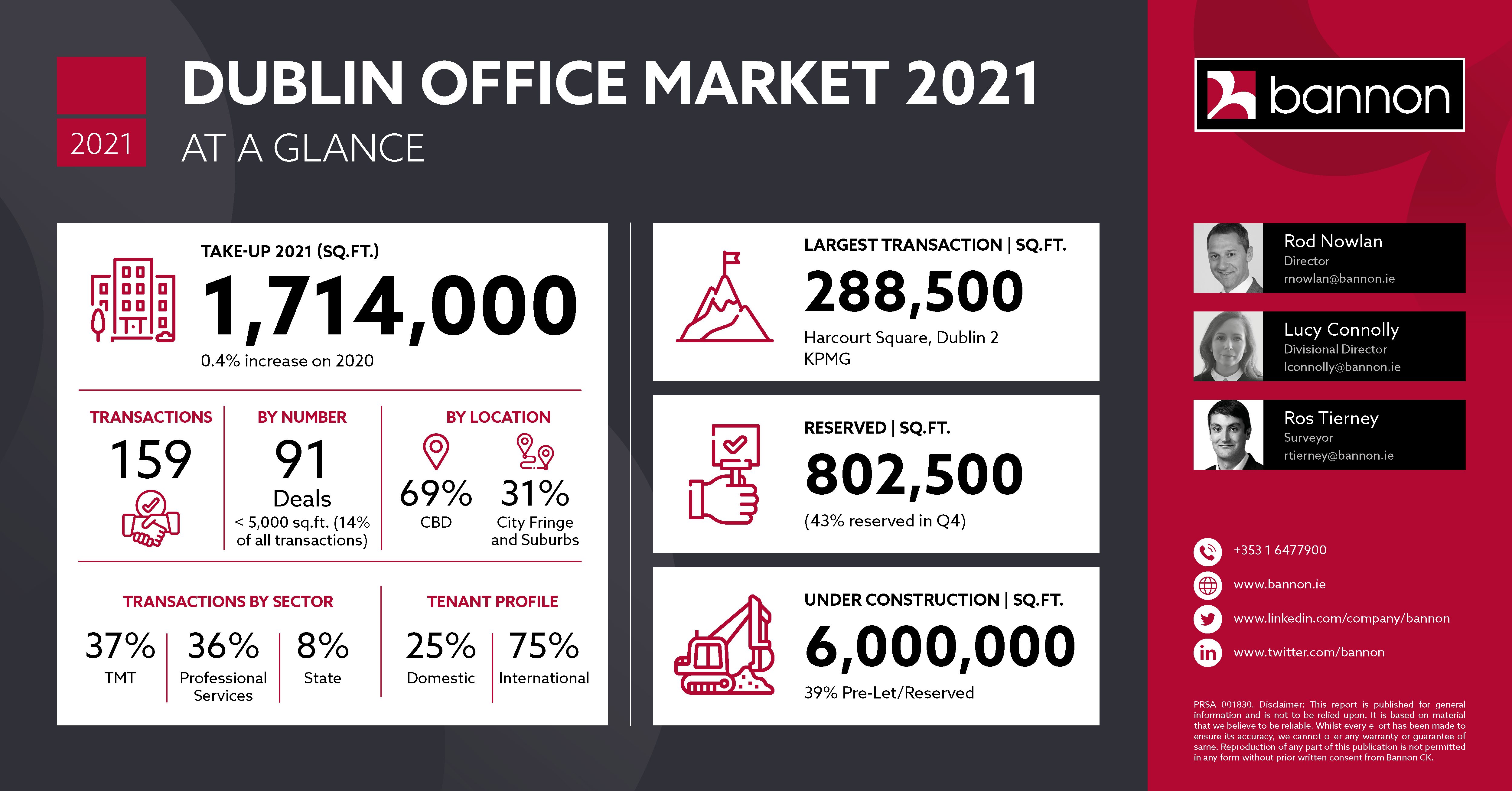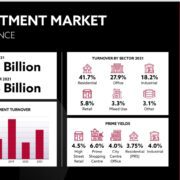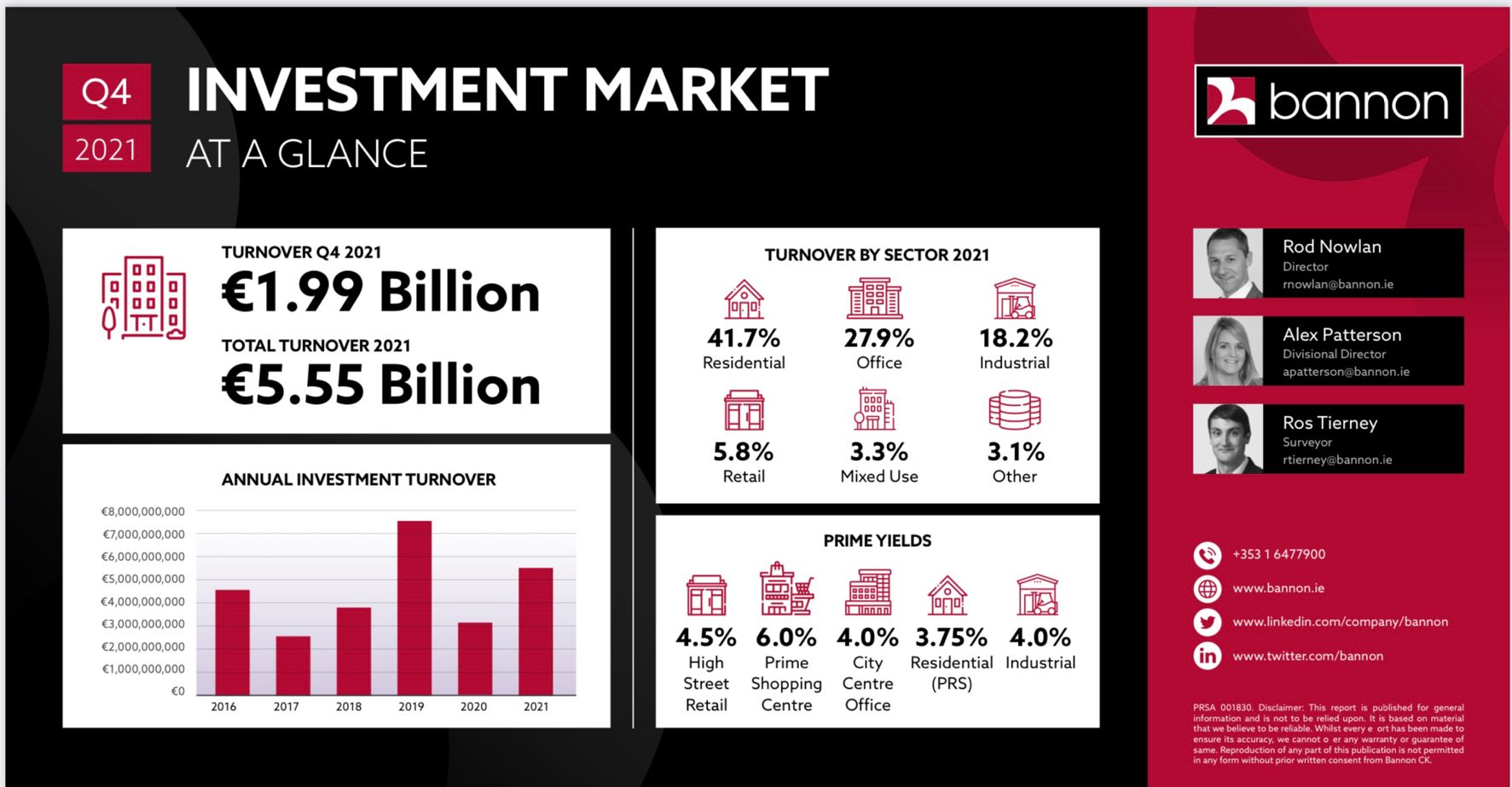
Every rent review has its own peculiarities. It is essential to take account of such items as the hypothetical term, break clauses, headline rent versus net effective rent and the specification of the premises to be reviewed. It is also important to ascertain if any occupier improvements have been carried out and whether these are to be disregarded for rent review purposes.
Des Byrne, Director at Bannon, has over 30 years’ experience in rent reviews on all types of commercial property and is an experienced Arbitrator. Des answers some key questions about rent reviews.
1. What types of rent review exist?
- Rent Review to Open Market: The rent is capable of being increased/decreased or remaining at the same level.
- Upwards Only Rent Review: In relation to “legacy leases” where the rent at review cannot go downwards from the passing level of rent.
- Upwards Only Rent Reviews after the 28th January 2010: Was the lease entered into after the 28th January 2010 without a prior Agreement for Lease? In this circumstance regardless of wording within the lease, the rent may be construed as being capable of being increased/decreased or remaining the same in accordance with Section 132 of the Land and Conveyancing Law Reform Act 2009.
2. Is the rent to be calculated by reference to the Consumer Price Index where the CPI is tracked?-
- CPI with a Cap and Collar: Here the rent review is to be determined on the basis of the movement in the Consumer Price Index but limited to certain percentages of increase or decrease.
- Turnover Rent Conversion: This depends on what basis the original lease was entered in to. For example, a turnover provision may only be capable of being converted to a market rent review mechanism after a certain period of years and on what basis.
- Base Rent and Turnover: In the case of a lease entered into on the basis of a base rent which is capable of being reviewed together with a turnover. The turnover condition may fall away at first review.
3. How would my Rent Review be instigated?
Leases may provide that the rent review may be agreed between the parties at any time, it may require that it be triggered by a rent review notice which may be issued by the owner or by either party.
4. How is my rent calculated?
The rent will be calculated by reference to the provisions of the rent review clause, taking into consideration certain assumptions and disregards.
5. Can I agree my rent by negotiation?
Yes, this is the normal practice and in the event of negotiations proving inconclusive. However if negotiation fails to result in agreement, there would normally be provision that the matter may be referred to an Arbitrator or to an Independent Expert.
6. What is involved in Third Party Adjudication (Arbitration / Independent Expert)? How is an Arbitrator or independent expert appointed?
The lease would normally advise as to how the third-party valuer may be appointed. There may be provision where the Arbitrator/Independent Expert can be agreed between the parties.
Failing agreement, there may be provision that the matter can be referred to an appointing body such as the Society of Chartered Surveyors Ireland or the Law Society for such an appointment. Once an appointment is made, the Arbitrator or Independent Expert will write to both sides indicating how the matter may proceed. It may proceed either by way of an Oral Hearing or by written documents i.e., the forwarding of Submissions and Counter-Submissions.
Each side will have to prove their case at Arbitration and offer their true opinion of rental value and they will attempt to prove this rental value by a reference to comparative transactions.
- Who pays the cost of Arbitration?
The parties themselves may agree in advance of the Arbitration as to how the costs can be split (perhaps each side agreeing to pay their own costs and half of the Arbitrators costs). When this is not possible the Arbitrator has power under the Arbitration Act to determine costs.
A party who wishes to limit their exposure to costs may decide to serve a Calderbank Offer on the other side which may have the effect of limiting their exposure to costs. A Calderbank Offer is an offer to settle the rent review at a particular figure without prejudice save as to costs.
7. Is it possible to Regear my Lease?
Sometimes this is possible particularly where occupiers have the benefit of break clauses or when a lease is due to expire within a short period of time.
In such circumstances, it may be possible to agree a lower rent in recognition of an occupier agreeing to forfeit their break option or agreeing to extend the lease by a particular period.
8. Other Considerations?
Particularly in relation to office rent reviews, it is important to determine the category of office with which one is dealing i.e., is it Grade A space or of a different quality. The specification of the building is also important particularly in relation to fitting out, mechanical systems and floor to ceiling heights.
In the current economic climate, comparisons may be viewed upon as pre-pandemic, during pandemic and post pandemic if we reach that point.
Retail rent reviews are tending to become contentious with the occupiers seeking lower rents in city centre locations affected by the pandemic. On the other hand owners are seeking higher rents in suburban shopping centres which are beginning to be rediscovered by employees who are now working on an agile basis.
For further information, contact Des Byrne, Director in the Professional Services and Valuation Team at Bannon (Email: dbyrne@bannon.ie).

























